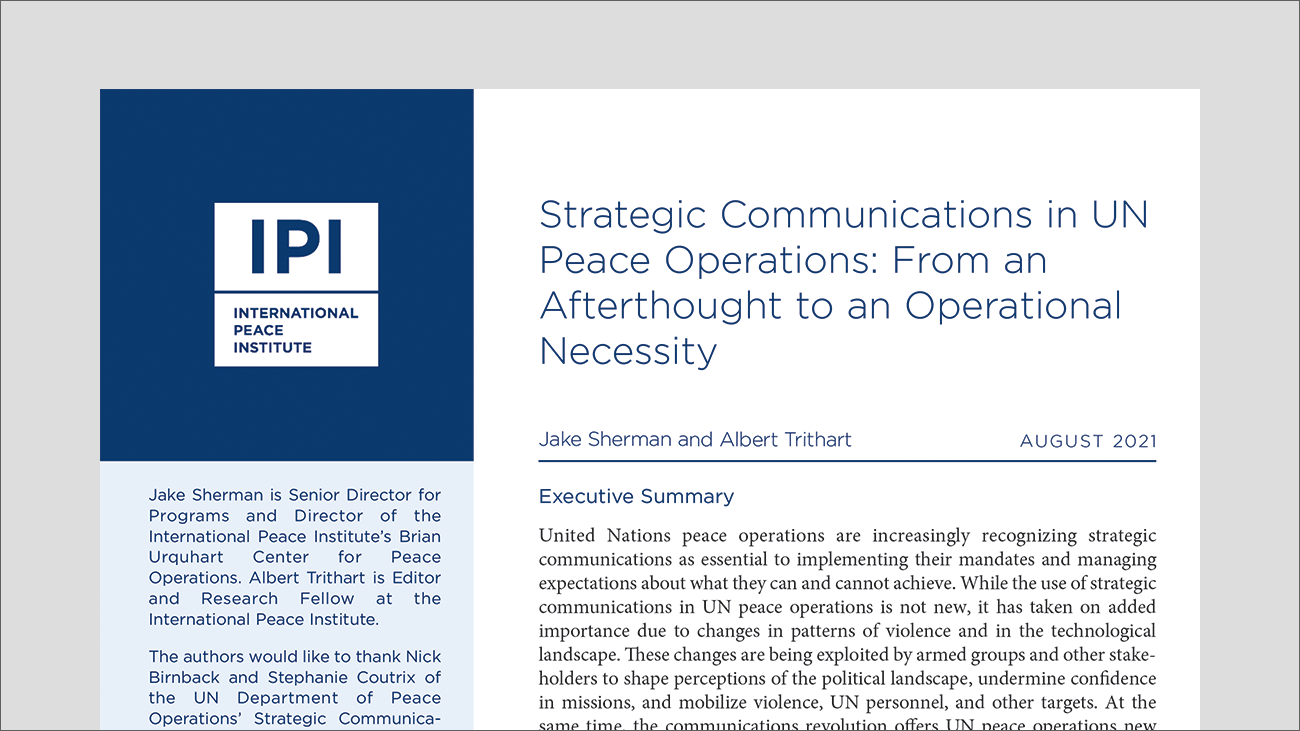
United Nations peace operations are increasingly recognizing strategic communications as essential to implementing their mandates and managing expectations about what they can and cannot achieve. This has led them to ramp up their communications capabilities and shift their approach away from the traditional top-down, one-way model of communication. Nonetheless, missions continue to face obstacles in realizing this approach.
This issue brief analyzes the current strategic communications practice in UN peacekeeping operations and special political missions. It explores why strategic communications are increasingly important in the contexts where missions are deployed and the external and internal challenges missions face. It also identifies best practices peace operations might adopt or adapt from other parts of the UN system and related fields.
The paper concludes that, while missions may need additional resources for strategic communications, what they most need is a cultural shift. Mission leaders need to see strategic communications as a core mission capacity. Strategic communications are not an operational support function, a downstream activity, or an output of a planning cycle; they are an integral part of political strategies and mandate delivery. They are not just a leadership function but a “whole-of-mission” responsibility. Strategic communications must therefore be treated as central to every phase of a UN peace operation. If missions are to succeed, strategic communications professionals should be part of their decision making, from initial planning through transition and exit.







